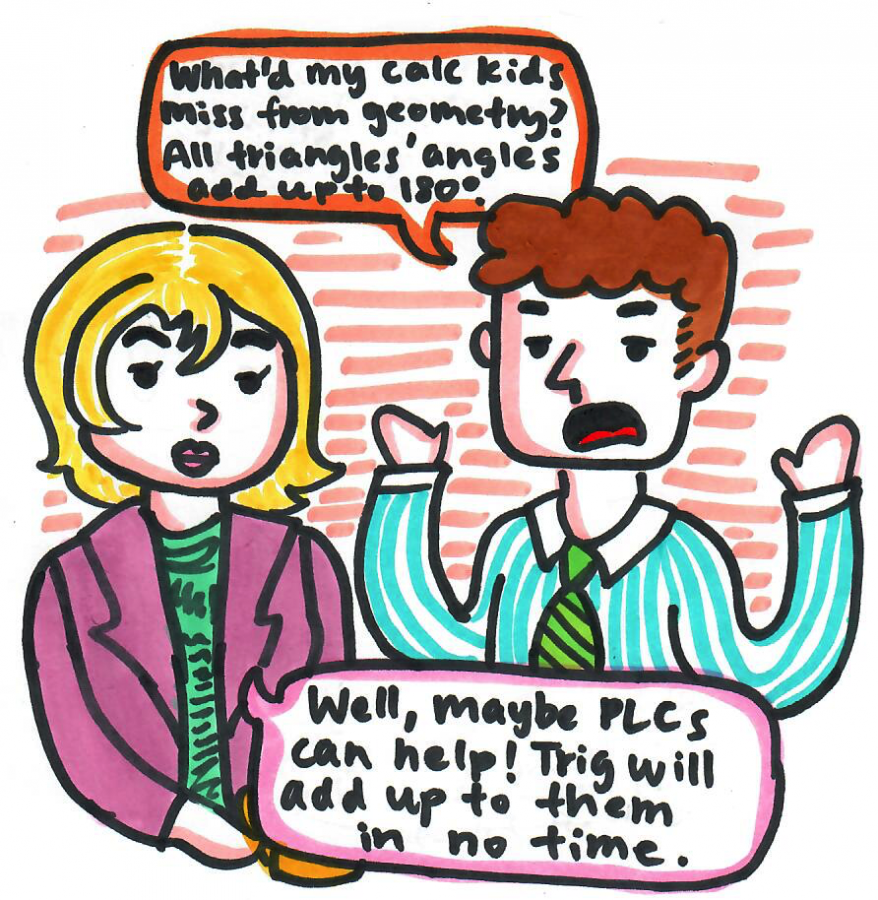Professional Learning Communities Encourage Collaboration Among Teachers
February 1, 2019
Principal Gabriel Griego wants to implement professional learning communities at Venice as a way to empower teachers to work together in teams. PLCs are groups of teachers working together to improve student achievement in specific subjects.
Mr. Gregio said PLCs would be a great way to move the school forward. Last fall the Western Associations of Schools and Colleges recommended that Venice teachers collaborate more and PLC are a great way to do that.
PLCs encourage teachers to work together to conclusively decide what are the most important standards for students to reach in a specific subject, said Daren Kitajima, science department chair. Instead of trying to teach all the standards and only have a few students understand, the goal is to teach a few core standards so all students can understand.
The teachers would then collectively create assessments to test students.
“All the Algebra I teachers would work together and they would conclusively decide on what were the most important standards and collectively come up with common assessments,” said Brent Rojo, math department chair. “Students would take them and teachers would look at the data and see what students knew and what students needed work on.”
The main goal of this would be to see the transparency in test results. Students could test well on a certain teacher’s exam but others might test poorly on another’s exam. It wouldn’t be fair to compare the exam results equally because the tests are different. If teachers gave the same assessments it would objectively show what students are struggling with or learning.
The results would then help teachers collaborate more effectively to help struggling teachers teach a certain topic. Teachers agree that when they collaborate their teaching gets better.
“I think it is going to be really great because we will be working together working toward a common goal and we will be making sure the kids understand what they are supposed to know in that grade level, so when they graduate they know what they need to know to go to college,” said Ms. Ruth Greene, English department chair.
Venice has sent teachers to conferences so they can learn more about it and they have brought in a guest speaker to come talk about PLCs. But not every subject is well versed so teachers would have to go through more training, said Ms. Lakisha Clark, assistant principal. Math and English are doing very well with PLCs because they already know what do and have forged forward, she added.
If PLCs are permanently implemented it could mean changes to the bell schedule and more professional development days so the teachers could have more time to collaborate. There could even be an advisory class where students get help in the subject they are struggling in during school hours.
“I would want the culture to be where our students understand that they have to also give 110 percent,” said Principal Mr. Gabriel Griego. “We could have the best teaching, the best PLC but if we don’t have the students wanting to get to that next level then it’s not going to work.”
This means that students would also need to meet the teachers halfway and be motivated to do well in their classes.



